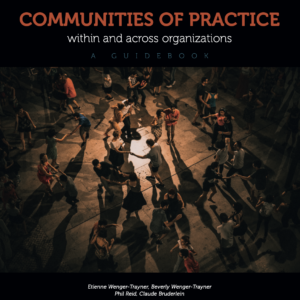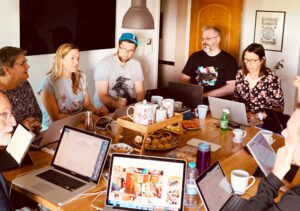NOTICE: There is an updated version of all these FAQs on our new website:
Are Facebook or Linked-In tools for communities?
Networking websites, such as Facebook or LinkedIn offer quick, simple, and cheap ways for communities to open spaces for interaction. While the sites may not offer all the features that communities of practice need, they present the advantage of being located where people already have accounts, profiles, and personal networks.| << Are the new “web 2.0” technologies relevant? | What use are media-sharing sites? >> |
For more information, click here:
For a more precise definition, see our theory page on communities of practice:
For a bit more info, see our general (but brief) introduction to communities of practice and their use in various contexts:
For practical advice on cultivating communities of practice, see our new guidebook:
For workshops on cultivating communities of practice:



Networking websites such as Facebook, Linked-In, and Google+ are tools that can help create communities of sorts. For instance, I am now in a “community” of people I went to high school with, some of whom I never really knew in high school. I am also in a “community” of people who like to remember what our hometown was like when we were growing up. However, these are not communities of practice because there is no shared practice or sustained interaction or learning from each other in a way that improves our praxis. In fact, I would use the term “community” loosely here, because, while these sites provide an avenue for interaction, I can opt out just as easily.